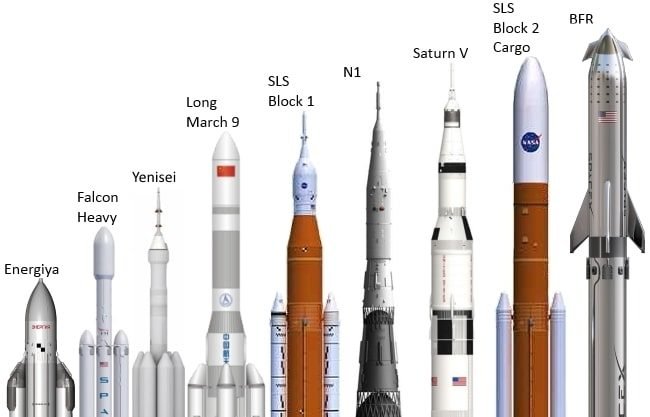Space: The Next Financial Frontier
Space is enormous. It always was.
Now it is turning into a monumental financial opportunity.
The race for Internet Satellite is well documented. SpaceX and Blue Origin are in a heated battle to cover the entire planet with satellites providing Internet service. Musk has stated that SpaceX is going to enter Alpha in the next few months with the goal to offer the service to the public in certain northern regions by the end of the year.
This is obviously a fantastic opportunity for any company able to pull it off. It puts the potential customer base at more than 7 billion people.
We also see many companies racing to get funded on projects such as asteroid mining. While this is a bit down the road, it is a quest that could create some trillionaires.
Some are discussing missions to the moon and Mars. These are projects that stimulate great debate yet it does appear where things are headed.
Virgin Galactic became a publicly listed company at the end of last year. This Richard Branson creation is looking to offer space tourism beginning in the next few years. This will eventually lead to hotels enabling tourists to spend time in space.
Few, however, are as ambitions when it comes to space projects as Elon Musk. His company, SpaceX, is making remarkable strides.
One of the central components to the space plan is the Starship program. These rockets are getting less expensive to build with a goal of coming in around $5 million each.
Rocket technology is seeing an increase in capacity along with a lowering of cost. As we can see by this graphic, the SpaceX line of rockets advanced a great deal in the past decade.

Much of our society now benefits from the decreasing cost of technology while seeing increases in capability. Space certainly is looking like it can have a run over the next 20-25 years that we saw here on Earth. As satellites, rockets, and other components required for space exploration/settlement travel along the I.T. pathway, more options are going to open up.
Musk talked about manufacturing 1,000 Starships over the next 10 years. He wants to start making 2 per week at some point in 2021. Even if they hit 100 per year by 2023, that would allow them to surpass the 1,000 by 2030.
This would effectively put them on par with the commercial jet industry, which manufacturers between 1,000-2,000 planes each year.
The 5 million price tag would mean they cost less than commercial jets while being able to carry 100 tons of cargo, moving at 20 times the speed. This could see a shift of transportation that is presently done by plane of distances over 1,500 miles.
Another interesting fact is that, at these prices, some long time Sci-Fi initiatives can be realized. The Voyager Station could become a reality, more than 60 years after it was first discussed.


This could be accomplished by connecting 300 Starships together. The cost of the ships, connections, hardware, plus docking: a bit over $2 billion.
The cost of a cruise ship: $1 billion.
For a little more than double the cost of a large cruise ship, would could have a rotating space station that was able to simulate gravity.
These are just a handful of the opportunities we are seeing in the space race.
Huge financial resources are being dumped in because the profits can be enormous.
If you found this article informative, please give an upvote and rehive.

gif by @doze

Posted Using LeoFinance
Wow ... I stayed here now imagining all this, the space race, the trips ... I am 30 years old and I know that at least I will see the beginning of it all and at least my children will enjoy it too! Cheering here for Elon Musk to be able to do as much as he can on time, hahaha ...
Posted Using LeoFinance
You will see a lot. By the time you are 60, some form of space travel will be normal.
I have 20 years on you and I am hoping longevity technology allows me enough time to see all that is coming over the next 30-40 years.
Posted Using LeoFinance
I also hope you can see. So let's wait: D
I am very skeptical about Earth-to-Earth spaceship travel, compared to conventional planes they might be faster, but negatives are numerous, most important ones are:
Colonizing Earth's orbit on other hand is very interesting and building station with artificial gravity would be awesome. Same goes for building base & industry on Moon - kinda gate to rest of space imho.
Posted Using LeoFinance
All valid concerns although, to your first point, the fact that SpaceX is landing their rockets on barges is showing progress in the ability to "stick" them upon landing. In a couple decades time, the technology might be where they can land in any designated location.
As for point number two, there was that risk in the early days of airplanes. Back in the 1940s and 1950s, plane crashed were fairly common.
Posted Using LeoFinance
Deep insights and all economies who peek into this technology at this early stage will be glad they did.
Those words are so powerful. Sounds like a book title.
Posted Using LeoFinance